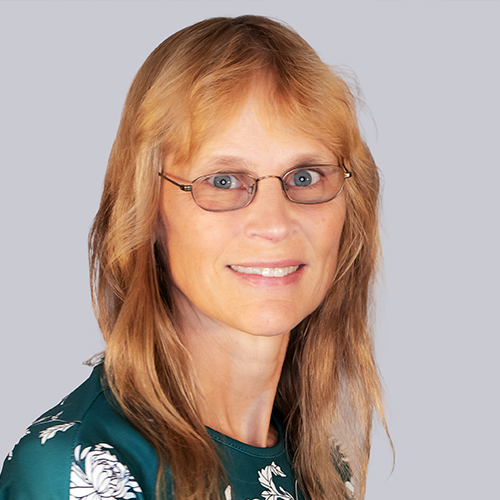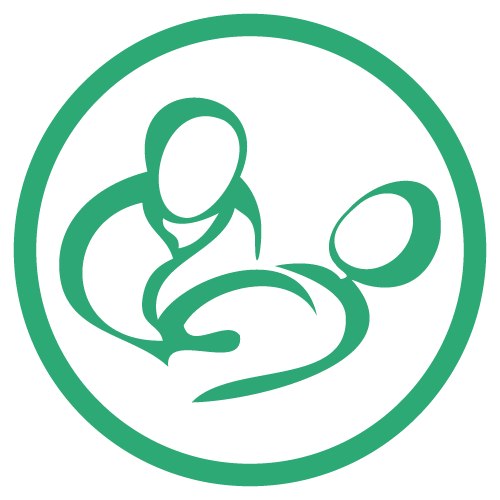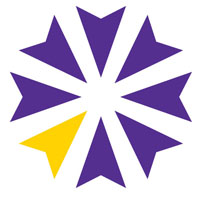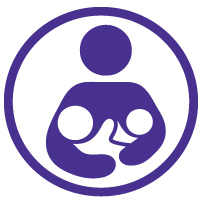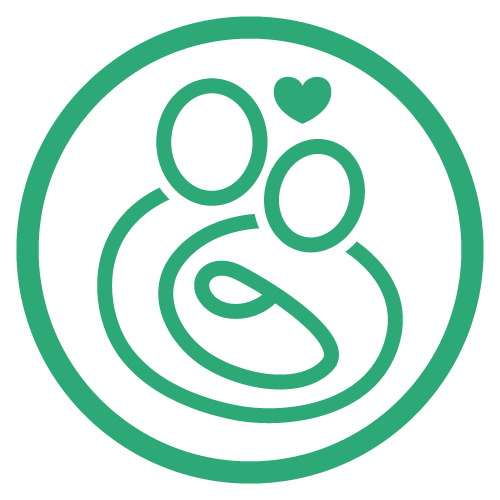 IBCLC Detailed Content Outline: Psychology, Sociology, and Anthropology Focused CERPs - Section V
IBCLC Detailed Content Outline: Psychology, Sociology, and Anthropology Focused CERPs - Section V
Access CERPs on Psychology, Sociology, and Anthropology for the IBCLC Detailed Content Outline recertification requirements. Enjoy convenient on-demand viewing of the latest Psychology, Sociology, and Anthropology focused IBCLC CERPs at your own pace.
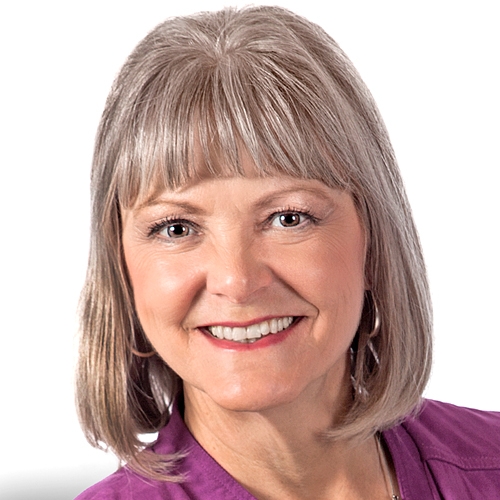

Karen has worn a number of hats in her nursing career but always comes back to her passion for premature babies. Her background includes NICU nurse, transport nurse and NICU educator, rural nursing, staff development, pediatrics, pediatric intensive care, and community health. For over 20 years Karen has lead Calgary’s specialized “Neonatal Transition Team”, which she will talk about today. Karen has presented locally, nationally, and internationally and has also been co-investigator in several research and quality improvement studies examining outcomes for very low birth weight infants. For nearly 30 years, Karen taught, wrote instructional material, and produced on-line courses for nurses to earn a certificate in neonatal nursing through Mount Royal University. Karen is a past-president of the Canadian Association of Neonatal Nurses and served on this national board for 12 years, and on the international board of the Council for International Neonatal Nurses for 3 years. In 2019, Along with co-author, Tammy Sherrow, Karen published the book “Preemie Care: A guide to navigating the first year with your premature baby”.
Topic: Home Sweet Home? Realities and Remedies - [View Abstract]
Topic: “Zooming Ahead”; Post-NICU Discharge Very-Low-Birth-Weight Infant Follow-up Program Goes Virtual - [View Abstract]
Discharge teaching programs are typically established based on what we as health care providers think parents need to know. Reality sets in very quickly for families after taking home a premature newborn. Despite thorough discharge teaching and parent involvement in hospital, parents are surprised by the challenges they face post-discharge. Feeding, behavior, reflux, sleep, and parenting troubles top the list. Based on over twenty years’ experience working with premature infants and their families beyond discharge, the presenter will reveal common challenges encountered and discuss research-based and practical strategies for the NICU team to share with parents to smooth the transition home. A greater knowledge of post discharge sequelae and preventative strategies will aid the NICU team in optimizing the discharge process and ultimately improve outcomes for babies and parents.

View Details / Enroll
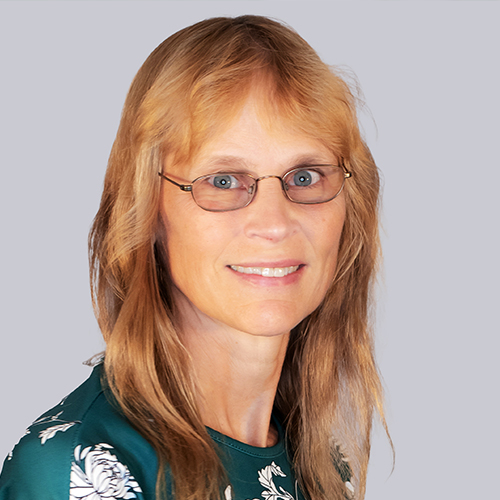
How Do You Respond to the Unusual? Case Studies of Uncommon Events in Birth

Bonnie Urquhart Gruenberg, CNM, MSN, CRNP, is the award-winning author of Birth Emergency Skills Training; Manual for Out-of-Hospital Midwives, and co-developer of the workshop by the same name. In 2023, her long-awaited seminal work, Birth Emergencies for Community Midwives, will come to press. She has caught more than 2,100 babies to date in the home, in a free-standing birth center, and in the hospital. She currently works for Wellspan Health in Lancaster County, PA. Bonnie has written and illustrated 12 books on topics ranging from midwifery and maternity care to wild horse management. She enjoys painting, photography, and hobby farming.
Topic: Placentas Behaving Badly - [View Abstract]
A seasoned midwife sometimes encounters unusual situations in clinical practice. In these unique case studies, we will consider the challenges of paravaginal birth, uterus didelphys, cervical myoma, and acute urinary retention in the second trimester.

View Details / Enroll
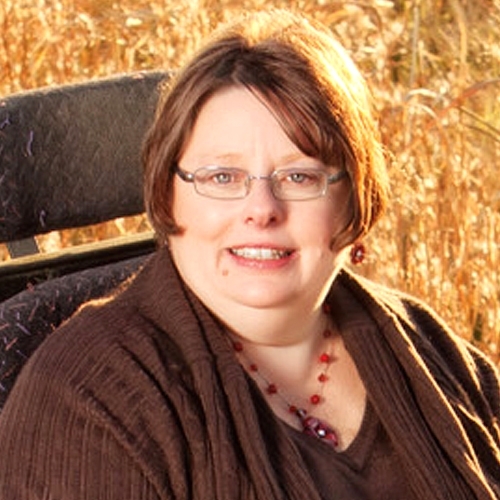
How to Correctly Use Peanut Balls During Labor

Cheri Grant RN, ICCE, CLC, ICD, CLD, CD BDT(DONA). Is the Coordinator of LifeStart Program at St John Owasso Hospital. Childbirth Graphics named her “The Peanut Ball Lady” She is the founder and consultant for Premier Birth Tools a website that has resources for peanut balls and its mission is to get peanut balls in every hospital in the United States with resources for everyone in the world, and to teach how to use it correctly. She continues to guest lecture to OU, OSU residents and nurses on maternal and child health topics such as the "Secrets of Labor Support." She spoke on the peanut ball at the National LAMAZE convention “The Peanut Ball- New Tool for Your Doula Bag and Its Effect on Laboring Women “She has also published several an articles on the peanut ball including " The Peanut Ball: A Remarkable Labor Support Tool " in the DONA international magazine and the "Peanut Ball, Improving Options for Women Laboring with an Epidural" in Australian Midwifery News. She has recently been featured on the Podcast “How do Peanut Balls Support Labor? “ for Evidence Based Birth. She is an Authorized Peanut Ball Trainer and has developed many educational tools for the peanut ball. She also has given over 100 in-services on the peanut ball. She is the Founder of Tulsa Doulas Inc. Doulas of Northeastern Oklahoma which she started 25 years ago. She is a Birth DONA Doula Trainer her certificate number is #2 as a trainer for DONA. She is certified as a Doula through DONA, ICEA and CAPPA. She is an internationally certified childbirth educator through ICEA for over 30 years. Cheri is an author of “Labor Support Forms – A Guide to Doula Charting” which is in its Third edition and on the app Mobile Doula . Several of her articles have been published in ICEA and DONA Journals. She has lectured at DONA international conventions and AWHONN State conventions “. The Peanut Ball" and Implications for Women Health”. She also produced and directed a Video on “Comfort Measures for Labor.” She teaches and coordinates training workshops for Birth Doulas and nurses talking about the profession of doulas around the country. She previously was a lactation consultant IBCLC for over 10 years. She also maintains her lactation educator. Previously she was also AWHONN certified in-patient obstetrical nurse for many years. She was also featured on the front page of the Tulsa World for her 42 years of work with pregnant and laboring women. Teaching and speaking about how to correctly use the peanut ball is her passion.
In this presentation, those new to the peanut ball will learn how to use this tool to progress labor and experienced birth professionals will expand their knowledge. You will learn the original seven peanut ball positions and be introduced to a few new advanced positions. You’ll learn the latest research on peanut balls use in labor. You will learn how to properly cover, clean and store peanut balls. You will learn how to correctly size peanut balls for your client depending on what position they are using in labor. One size peanut ball does not fit all clients. Identify contraindications for the peanut balls. Differentiate how to place clients hips internal or external rotation, using this information in relation to where the baby is in the pelvis such as in the inlet, midpelvis, and outlet when using a peanut ball as a labor tool.


Duncan Fisher promotes and develops support for parents to advance child health and development. In the last year he has been working with breastfeeding researchers across the world and with the World Alliance for Breastfeeding Action to advance the idea of "breastfeeding as teamwork", following striking findings from research of the high gains from engaging with fathers and other family members. In UK he co-founded the Fatherhood Institute and for three years he served on the Board of the Government’s gender equality body, the Equal Opportunities Commission. He manages the website, FamilyIncluded.com, where all recent research on breastfeeding and fathers/families is reported. He initiated and currently manages a website for Cambridge and Princeton Universities reporting research on child welfare and development, ChildandFamilyBlog.com. He was awarded an OBE by the Queen in 2008 for his “services to children”. Duncan lives in Wales and divides his time between family work and work to support sustainable economic development in his home country.
Breastfeeding programmes that engage fathers are more effective than ones that only involve mothers and professionals. This accords with research that has shown that family is the main influence on breastfeeding. The way that families influence breastfeeding is diverse, depending on the make-up of the family, local culture and location (e.g. urban/rural). The influence of fathers is not necessarily intentional, but what fathers think and do influences the situation in almost every situation. In this presentation I will describe the principles of success that have been learned from programmes with published evaluations. These principles can be summed up in the phrase recently adopted by the World Alliance for Breastfeeding Action, "breastfeeding is teamwork".
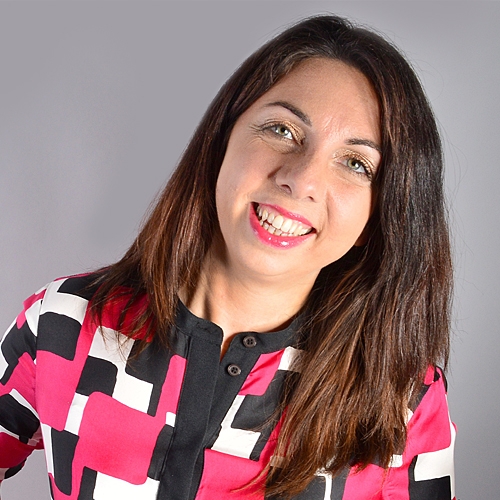

Alexia is a therapeutic coach, the author of Fearless Birthing, and the host of the award-nominated and chart-topping Fear Free Childbirth podcast. What began as a maternity leave side project is now an essential destination for women with a fear of birth with thousands of women now using Alexia’s site every month to lose The Fear. Alexia helps them to prepare for birth through her private sessions, online courses and membership community.
At the heart of Alexia’s work is a unique fear-clearance method, which women around the world are now using to help them prepare for their birth, and that she successfully uses to help women overcome tokophobia. Alexia also provides training to pregnancy and birth professionals who want to use her Fearless Birthing approach so that more women can access this level of fear-clearance support in preparing for pregnancy and birth.
Fear of childbirth is thought to affect up to 50% of women. In some women, this fear is so strong that they choose not to have children. For those who do, their fear will most likely have an impact on their birth choices and their birth experience. Helping a woman to reduce her fear of birth can be transformative for her experience as a new mother as well as for the family. Reducing fear in women can also contribute to reducing the healthcare costs associated with CS delivery and post-natal mental health. In this presentation, Alexia Leachman will explore the nature of fear of birth, and its most extreme relation, tokophobia. She will discuss where fears come from, why birth isn’t always the problem, and how we can help women to overcome them so that they can go on to experience a fear free childbirth.

View Details / Enroll


Anna has been working as a midwife since 2009. From the very beginning of her studies she has been fascinated with breastfeeding. During her studies for her Bachelor's and Master's degrees in Midwifery, her main area of interest was promotion and support for breastfeeding among women. Anna's interest in breastfeeding turned into a passion that led her to pursue the Polish Certification of Lactation Consultant and she is working toward certification as an IBCLC. She opened a private practice and a support group for local women in Krakow (cracko). Anna’s Interest and passion for lactation and breastfeeding have deepened during her current PhD studies. She is a PhD candidate in 2018 at University Medical College and is the coordinator of the Krakow Human Milk Bank.
Her scientific area of expertise: change in milk composition (macronutrients), human microbiota during pregnancy, lactation as well as tandem breastfeeding. Her research is carried out in the Department of Obstetrics and Perinatology. Anna is the author of many lectures and workshops for students of midwifery and medicine in area of breastfeeding, lactation and the variation of composition of human milk. Since 2016 she has been popularizing the science of human lactation in Poland and she is always finding new ways to promote and support breastfeeding women. In her spare time she practices meditation, yin yoga and is learning how to dance rock and roll.
Topic: Rusty Pipe Syndrome: A Case Report From Poland - [View Abstract]
Although Human Milk Banks are already more than 100 years in the world in Poland they are pretty new and young institution. History of breast milk sharing is well known, in times of war in Polish women sell milk on food market. Today we have a professional Human Milk Banks with international standards and very engaged in scientific work. Human Milk Banks working as non-profit institution, but from this year 2017 our government will pay and support all hospitals in Poland which feed premature babies and full time newborns - human milk (biological mother or from Human Milk Bank). This presentation will show the history of our banks, inception steps, functioning, obtaining Donors Mothers, cooperation with non-governmental organizations and the national health service in Poland.
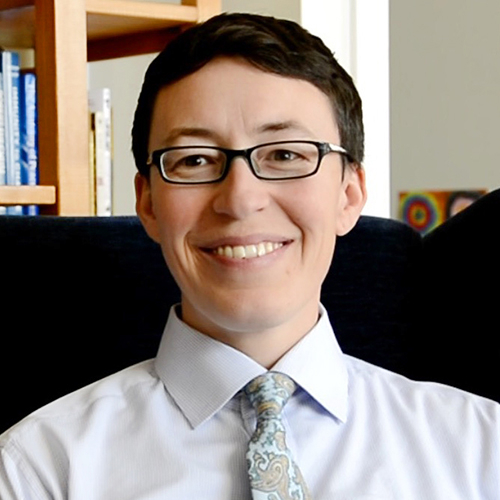
Human Rights During Birth and Lactation: Health Care Providers as Human Rights Defenders

Indra Lusero is founder of Elephant Circle and the Birth Rights Bar Association. As a Queer, Genderqueer, Latinx parent rooted in the Rocky Mountain West, Indra is attuned to the importance of people on the margins and our role in leading the dismantling of oppressive systems to build a more equitable world. Indra helped pass legislation in Colorado to eliminate the shackling of incarcerated women during pregnancy and birth, to improve midwifery and birth center regulations, and to create more humane policies for families impacted by substance use. Indra also spearheaded the creation of "Birth Rights: A resource for everyday people to defend human rights during labor and birth.
Human rights violations related to childbearing are an international phenomenon. Such violations have only recently been recognized by organizations like the World Health Organization and the United Nations, and avenues for accountability and redress remain limited across the globe. Nonetheless, empowering health care providers, including lactation professionals, with the confidence and courage to be human rights defenders is a critical step in vanquishing these harms and protecting people from conception through lactation.
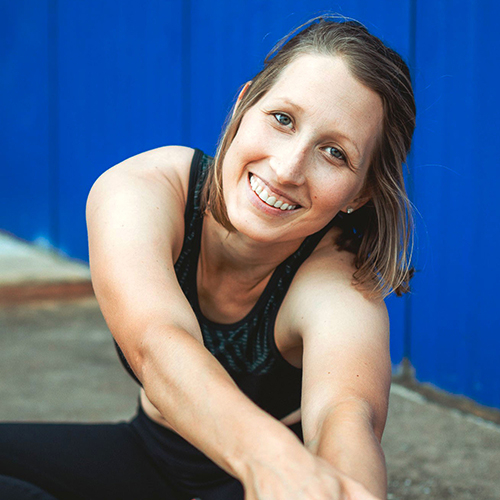
Hypermobility Spectrum Disorders (HSD) and Pregnancy: Assessment and Clinical Management

Monika Patel, Doctor of Physical Therapy and Strength and Conditioning Specialist has a passion for empowering women to prepare mentally and physically for a well-balanced parenthood. She is currently undergoing the American Physical Therapy Association's Certificate in Obsetrics. She has applied her knowledge toward preventative medicine and established Train4Birth, an affordable online education and beneficial movement course with a built-in accountability feature. She is also the mother of a truck-loving toddler and couldn’t be happier than digging with him in the backyard.
Hypermobile Ehlers-Danlos Syndrome (hEDS) and Hypermobile Spectrum Disorder (HSD) are estimated to affect 6 million (4.6%) pregnancies globally per year. As such, cases of hypermobility in maternity services should no longer be considered rare, only rarely diagnosed. Learn more about the potential impact of hypermobility on pregnancy, how to screen for it and clinical management. Useful hypermobility screening tools and decision-making matrices for birth workers, relative to a patient’s degree of hypermobility, will be outlined.
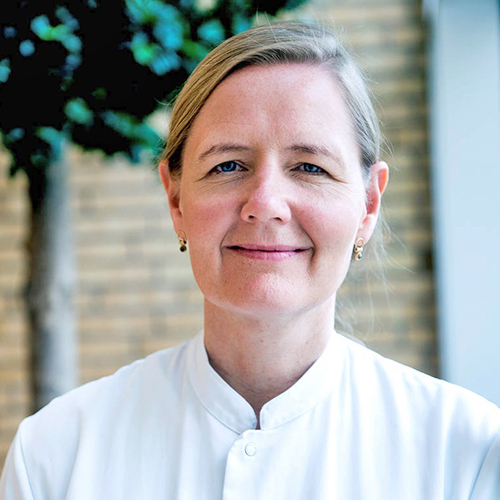

Kamilla Gerhard Nielsen is as obstetrician and psychotherapist part of the delivery unit in Aabenraa in Southern Denmark. A unit that has worked towards minimizing intervention in a safe environment with good outcome for mother and child. After joint effort from doctors and midwifes the department now has a cesarean section rate of 13 %, which is the lowest in Denmark. The rate of elective cesarean is 3 % and the unit has a high rating of satisfaction in Denmark from women giving birth.
Kamilla teaches with Obstetriwise.dk in several countries on the Upright Breech Birth, Fear of Childbirth and Occiput Posterior workshops. All theoretical and practical workshops with the aim of reducing unnecessary intervention in childbirth.
Topic: Reducing Cesarean Rates Through Teamwork and Innovation: A Case Study From Denmark - [View Abstract]
Fear of childbirth can have significant impacts and it’s important for care providers to be familiar with effective methods of management. It is central that the couple is not only met by a solution of planned cesarean section as a treatment. With tools and cases, you will learn how to help clients determine the details of their fear, how to work through previous traumatic experiences and increase the feeling of safety that is often central in the problem. Also addressed will be ways to prevent trauma during birth which can help reduce the risk of fear of childbirth in subsequent pregnancies.

Impact of Paternal and Maternal Postpartum Depression on Parenting Behaviors and Infant/Child Outcomes

Dr. Sheehan Fisher is an Assistant Professor and clinical psychologist at Northwestern University. His research career focuses on the effects of perinatal and subsequent parental mental health on infant/child health outcomes, with a specialization in the emerging field of father mental health. More specifically, he examines: 1) the biopsychosocial risk factors for parental psychopathology, 2) the impact of parental psychopathology on parenting behaviors and the family environment, and 3) the combined effect of the family environment on infant/child medical and emotional health outcomes. His aim is to reconceptualize parental mental health research to integrally involve both mothers and fathers to differentiate the etiology, course, and potential interactivity of paternal and maternal mental health and, in turn, the longitudinal associations with child medical and mental health. Dr. Fisher’s research dovetails with his perinatal clinical practice, including being the clinical director of the Fathers’ Mental Health Specialty Clinic. Ultimately, the goal is for his research plan is to optimize the health and effectiveness of the parental team to positively influence the child health trajectory starting from infancy.
Maternal and paternal depression rates are elevated during the perinatal period compared to the normal population. Historically, fathers were excluded from perinatal mental health research but there is strong evidence that fathers have their own unique experiences that are more recently being considered within research. Mothers and fathers express and report depressive symptoms differently, which may influence detection of depression. Both parents’ mental health has an impact on parenting behaviors and the family functioning, which ultimately have an impact on child health. Perinatal clinical treatment would benefit from a comprehensive examination of the family dynamic to best provide treatment of perinatal depression and improve child health. Fathers can be utilized as an asset to mothers and clinicians to support maternal mental health. Future research is needed to optimize clinical treatment of perinatal mental illness that accounts for the full family dynamic.




